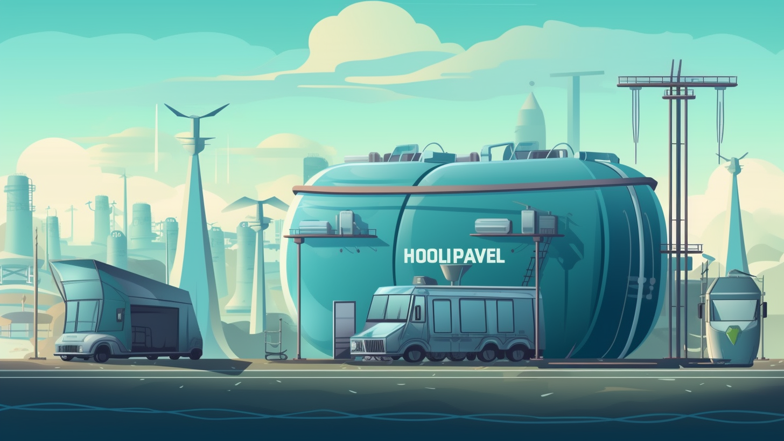
One of the biggest advantages of hydrogen fuel cells is their cleanliness. When hydrogen is used as a fuel in a fuel cell, the only byproduct is water. This means that there are no harmful emissions or pollutants released into the atmosphere. In addition, hydrogen is abundant and can be produced from a variety of sources, including renewable energy sources like solar and wind power. This makes it an attractive option for ensuring a sustainable energy future.
Another advantage of hydrogen fuel cells is their reliability. Unlike batteries, which need to be recharged, fuel cells can operate continuously as long as they have a supply of hydrogen and oxygen. This makes them ideal for applications where a reliable and continuous source of power is needed, such as in transportation, telecommunications, and remote power generation.
Despite these advantages, there are also many challenges and barriers to the widespread adoption of hydrogen fuel cells. One of the biggest challenges is the cost of producing and transporting hydrogen. Currently, most hydrogen is produced from natural gas using a process called steam methane reforming. This process is energy-intensive and produces carbon emissions. Developing more sustainable production methods, such as electrolysis using renewable energy sources, could help lower the cost and environmental impact of producing hydrogen.
Another challenge is developing the necessary infrastructure to transport and store hydrogen. Hydrogen is a light and highly flammable gas, which means that it requires specialized handling and storage. Developing a network of hydrogen refueling stations and storage facilities will be crucial to the widespread adoption of fuel cell vehicles and other applications.
Despite these challenges, there are already many innovative ways in which hydrogen fuel cells are being used today. Fuel cell vehicles, which use hydrogen to produce electricity to power electric motors, are already on the market from companies like Toyota, Honda, and Hyundai. These vehicles produce zero emissions and have a longer range than most battery-powered electric vehicles. However, they are currently limited by the lack of hydrogen refueling stations.
In addition to transportation, fuel cells are being used in a variety of other applications. For example, they are being used to power backup generators and remote power systems, such as those used in off-grid homes and in disaster response situations. Fuel cells are also being used in telecommunications, where they provide a reliable source of power for cell towers and other infrastructure.
One particularly exciting area of research is the use of fuel cells for energy storage. By producing hydrogen using excess renewable energy and storing it in fuel cells, we can smooth out the ups and downs of renewable energy production and provide a more reliable source of electricity. This technology is still in the early stages of development, but it holds enormous promise for a more sustainable energy future.
In conclusion, hydrogen fuel cells offer a clean and reliable source of power that could help revolutionize sustainable energy. They have many advantages over traditional fossil fuels and could play a key role in ensuring a cleaner and more sustainable future. However, there are also many challenges and barriers to widespread adoption, including the cost of production and transportation, the need for specialized infrastructure, and the development of more sustainable production methods. Despite these challenges, there are already many exciting applications for fuel cells, and research is ongoing to develop new and innovative ways to use this promising technology.
Comments
Post a Comment